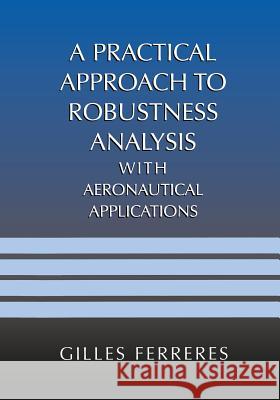A Practical Approach to Robustness Analysis with Aeronautical Applications » książka
A Practical Approach to Robustness Analysis with Aeronautical Applications
ISBN-13: 9781475772524 / Angielski / Miękka / 2013 / 206 str.
1. MOTIVATION In many physical situations, a plant model is often provided with a qualitative or quantitative measure of associated model uncertainties. On the one hand, the validity of the model is guaranteed only inside a frequency band, so that nearly nothing can be said about the behavior of the real plant at high frequencies. On the other hand, if the model is derived on the basis of physical equations, it can be parameterized as a function of a few physical parameters, which are usually not perfectly known in practice. This is e.g. the case in aeronautical systems: as an example, the ae- dynamic model of an airplane is derived from the flight mechanics eq- tions. When synthesizing the aircraft control law, it is then necessary to take into account uncertainties in the values of the stability derivatives, which correspond to the physical coefficients of the aerodynamic model. Moreover, this airplane model does not perfectly represent the be- vior of the real aircraft. As a simple example, the flight control system or the autopilot are usually synthesized just using the aerodynamic model, thus without accounting for the flexible mechanicalstructure: the c- responding dynamics are indeed considered as high frequency neglected 1 dynamics, with respect to the dynamics of the rigid model .











